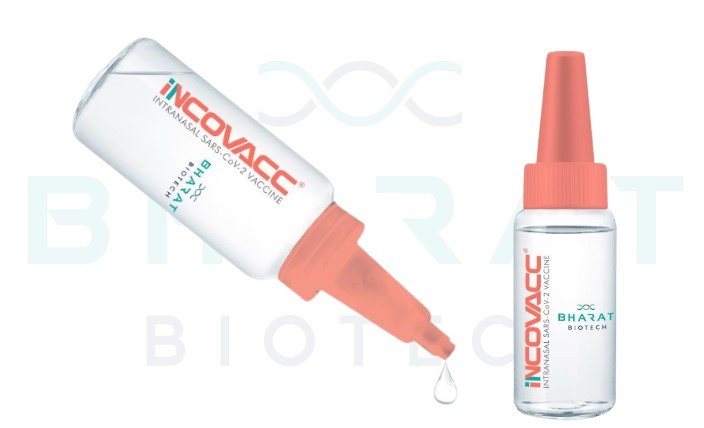CEPI will provide funding of up to US$19.3 million to support the development of a ‘variant-proof’ SARS-CoV-2 vaccine candidate to an international multidisciplinary consortium comprising Bharat Biotech International Ltd (BBIL), India, the University of Sydney, Australia and ExcellGene SA, Switzerland.
Bharat Biotech, University of Sydney and ExcellGene consortium is the latest award that CEPI announced today under its $200 mn programme to advance the development of new variant proof covid-19 vaccines that would provide broad protection against the Sars-CoV-2 variants and also other betacoronaviruses.
The Coalition for Epidemic Preparedness Innovations (CEPI), a partnership between public, private, philanthropic organisations to develop vaccines against future epidemics, in a press statement said it has partnered with Hyderabad based Bharat Biotech, the University of Sydney and ExcellGene of Switzerland to develop a ‘variant-proof’ Covid-19 vaccine.
CEPI has till date announced funding for nine such projects including the Bharat Biotech one
CEPI will fund the researchers to conduct activities including immunogen design, preclinical studies, manufacturing process development and a Phase 1 clinical trial. The vaccine candidate is aimed to work against other betacoronaviruses as well as vaccines against Disease X – unknown pathogens with pandemic potential that emerge in the future.
Betacoronaviruses are one of the four genera of coronaviruses – alpha, beta, gamma and delta. The natural reservoirs for betacoronaviruses are bats and rodents. There have been multiple betacoronavirus outbreaks in humans since the early 2000’s.
India’s Panacea Biotec along with the public sector institute Translational Health Science and Technology Institute (THSTI) have begun work on developing a coronavirus vaccine that would offer ‘broad protection’ against not only the Sars-CoV-2 virus, but also its cousins – Severe Acute Respiratory Syndrome (SARS) and Middle East Respiratory Syndrome (MERS).
The idea is to develop a pre-emptive vaccine for future coronavirus outbreaks. Their programme has also received funding from CEPI.
Bharat Biotech said that under the terms of the funding agreement, the consortium partners have committed to achieving equitable access to the outputs of this project.
Dr Richard Hatchett, CEO of CEPI said: “As repeated waves of COVID-19 infection remind us, we will be living alongside the virus for many years to come. The threat of a new variant emerging that might evade the protection of our current vaccines is real, so investing in R&D for variant-proof SARS-CoV-2 vaccines is a global health security imperative. Our partnership with Bharat Biotech, University of Sydney and ExcellGene will advance the development of a vaccine candidate to protect against future variants of COVID-19, potentially contributing to the long-term control of the virus.”
Dr Krishna Ella, Chairman & Managing Director, Bharat Biotech said that while current generation of vaccines are safe and effective against the currently known variants, it is imperative that we focus on innovation for multi-epitope vaccines, where a single vaccine can protect against all future variants.
University of Sydney will provide a framework for pre-clinical assessment of vaccine candidates, together with access to Australia’s early phase clinical trial community.
Meanwhile, ExcellGene, a privately-owned company offering research, development and manufacturing services to academia and industry partners, will provide the technology platform.
Dr Maria J Wurm, CEO, ExcellGene said: “Our technological platform for innovative protein designs was used in the past to identify and manufacture an antigen for an Ebola candidate vaccine, resulting in sterilizing immunity in pre-clinical challenge models. For the current COVID-19 project we are using similar approaches to generate numerous antigen preparations derived from spike protein variants of SARS-CoV-2, focussing eventually on the most promising antigen for vaccine purposes.”
This work forms an important part of CEPI’s next 5-year plan which aims to reduce or even eliminate the future risk of pandemics and epidemics.
CEPI’s 5-year plan lays out a $3.5 billion roadmap to compress vaccine development timelines to 100 days, develop a broadly protective vaccine against COVID-19 and other betacoronaviruses, and create a “library” of vaccine candidates for use against known and unknown pathogens
Key CEPI-funded vaccine projects aimed at broad protection against Sars-CoV-2 virus
MigVax Ltd – $4.3m
University of Saskatchewan’s Vaccine and Infectious Disease Organization (VIDO) -$5m Affinivax – $4.5m
SK bioscience –$50m
Translational Health Science and Technology Institute (THSTI) and Panacea Biotec – $12.5m
BioNet – $16.9m
DIOSynVax – $42m
NEC Corporation –$4.8m
Bharat Biotech/ University of Sydney/ ExcellGene –$19.3m






